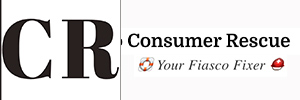Published: Updated:
Doris Weller had a pleasant stay at a Hampton Inn and checked out without incident. But a few days later, she received a disturbing notification from the franchised hotel. According to the hotel manager, she had damaged the mattress in her room — in the most embarrassing way. The problem would be fixed with a $250 deep-cleaning, which had already been charged to her credit card.
Weller says this is an outrageous false accusation by the hotel. She’s hoping our advocacy team can clear her name and get her money back.
Can we?
Weller’s experience is one that might make you think twice during your next hotel stay. When you hand over your credit card for “incidentals,” it isn’t just to cover the M&Ms from the minibar. As a guest, you might be accused, convicted and charged a hotel damage fee without any prior notice. But unlike in a court of law, it’s up to you to prove your innocence and reverse the conviction.
Editor’s note: This tale from Consumer Advocacy Land comes from my archived library. I first published this article about Weller’s hotel fiasco in 2018. Since then, I’ve fielded numerous similar cases for bewildered travelers, and the warning in my original article, unfortunately, remains the same.
A hotel damage fee of an embarrassing nature
Weller was visiting family in New Jersey when this bizarre ordeal began. She says she enjoyed a three-night stay without incident at the Hampton Inn. She flew back home and the next day found a mysterious $250 additional charge on her credit card bill.
Weller says initially the hotel was quite vague about the exact nature of this hotel damage fee.
“Hampton Inn accused me of damaging the sheets and the mattress of the bed I slept on,” Weller recalled. “I don’t know what happened, but when I checked out of the hotel, my bed was not damaged.”
When Weller pressed the manager for more information — in writing — he sent her the following email:
After you departed the hotel, our room attendant made an attempt to clean your room. During this time, it was discovered that heavy urine was left in the bed, sheets, and mattress that had been slept in during your stay.
This was confirmed by my executive housekeeper as well as myself. Due to this unfortunate incident the hotel had to charge you a $250 deep cleaning fee.
Hampton Inn
Weller says she couldn’t believe what she was reading. Not knowing where to turn, she contacted my advocacy team for guidance.
Asking the Hampton Inn for proof of this “damage”
“I hope you can provide some suggestions as to how I can demonstrate that I didn’t do this damage that the Hampton Inn claims I did,” Weller’s plea for help began.
Hmm… how does one provide evidence, post-stay, that they did not do this type of damage?
That was a tough question. But as I read through Weller’s paper trail, I noted that the Hampton Inn had only made an accusation. The manager hadn’t provided an incident report or photos of the damage.
“I feel it is just my word against his,” Weller lamented. “The only proof I have is that my pj’s were never wet. From his description, I should have been soaking wet, or my pj’s should have been soaking wet. I truly don’t understand these charges.”
Where’s the proof of the hotel damage?
Although most of our hotel damage fee complaints involve smoking accusations, we also receive many other requests for help from travelers who have been blindsided by damage charges after their stay.
In fact, I had recently helped another traveler vindicate himself after he was accused of damaging the TV in his hotel room.
I hoped for the same result for Weller. So I sent an inquiry to the general manager of this Hampton Inn. I asked if he could send the incident report over to our team with the supporting photos.
And then I waited. And waited.
Instead of responding to me, he sent Weller an email that informed her that the Hampton Inn would remove the charges.
In the interest of time, my controller has advised me to refund the amount charged. You will see this credit reflected back to your credit card statement within the next couple of days.
Hampton Inn
A refund in the interest of time? Weller was pleased to receive her $250 refund, but it certainly didn’t vindicate her. I decided to go to the parent company, Hilton, for clarification.
Asking Hilton about this hotel damage fee
I contacted the executive team at Hilton for additional clarification about Weller’s situation. After all, if a hotel accuses a guest of damaging a room, shouldn’t documentation be provided?
Our executive contact at Hilton explained that this particular Hampton Inn (as most are) is franchised. However, she did facilitate the mediation of this case.
After some investigation, the spokesperson issued the following statement:
A visual/physical inspection of the bed was conducted by the housekeeper, Executive Housekeeper, and the General Manager within hours after the guest checked out and all three verified the presence of urine.
As far as reversing the charges, this is not to be interpreted as an admission that the condition did not exist, rather than in the spirit of hospitality and to avoid further controversy we made the internal decision as an accommodation to the guest. We would welcome the guest to our facility in the future as we do all guests.
Hampton Inn franchise property
Unfortunately, this response did not assuage Weller’s concerns either. She adamantly reiterated her position — she did not soak her bed at the Hampton Inn in urine. And, unlike other cases, I’ve covered where the hotel provided plenty of evidence that damage was caused by the guest, this management team had provided nothing to support its accusation.
Related: Marriott charged me $750 for damaging a room in the most embarrassing way
📬 Subscribe to:
Tales from Consumer Advocacy Land
Real stories. Real rescues. Real advice.
Join thousands of smart travelers and savvy consumers who already subscribe to Tales from Consumer Advocacy Land — the friendly weekly newsletter from Michelle Couch-Friedman, founder of Consumer Rescue. It's filled with helpful consumer guidance, insider tips, and links to all of our latest articles.

Asking for further clarification about this particular hotel damage fee
I went back to our executive contact at the management company and asked for the written incident report. I thought that perhaps that could clarify the situation for Weller.
There is not an incident report completed for each since the condition is typically noted in internal housekeeping records. Odors and moisture cannot be easily captured through photography. We have solvents, cleaners and ozone machines that assist us in bringing guestrooms back to a condition that is suitable to rent it to other patrons. The amount of time it takes to do so is based on the specific issue(s) found in the room.
Because Ms. Weller is adamant that she was not the cause of the urine saturated bed, we have agreed to reverse the charges assessed to her. We have no logical explanation for the urine smell and wetness of the bed if it were not to be have been created by the guest occupying the room. We have neither personally attacked Ms. Weller nor have we communicated she is not welcomed at our hotel. The condition of the bed existed after her departure, and we were responsible to rectify the situation.
Hampton Inn
No incident report? This seems like something the property should reconsider. Anytime a hotel decides to charge a guest a $250 hotel damage fee it should generate an incident report. This reporting is in the best interest of the hotel and the guest. And since everyone has a cell phone today that has full capability of taking clear photos and videos, it’s curious why this Hampton Inn didn’t take one photo of this “urine- soaked bed.”
The bottom line
In the end, I could not give Weller the full resolution that she was seeking. This Hampton Inn did not have any proof of the damage to her mattress, but would not consider this an error.
Both Weller and I are pleased that the Hampton Inn backed down on its $250 charge, but the hotel’s accusations are still troubling. And the next time you’re checking out of a hotel, you may want to take a few photos of the room before you leave. You might need them later to defend yourself against a surprise hotel damage fee. (Michelle Couch-Friedman, Consumer Rescue)
Before you go: It’s not just damage hotel managers might accuse guests of. This bucket-list motorcycle traveler was accused of pillow thievery at a two-star hotel!



